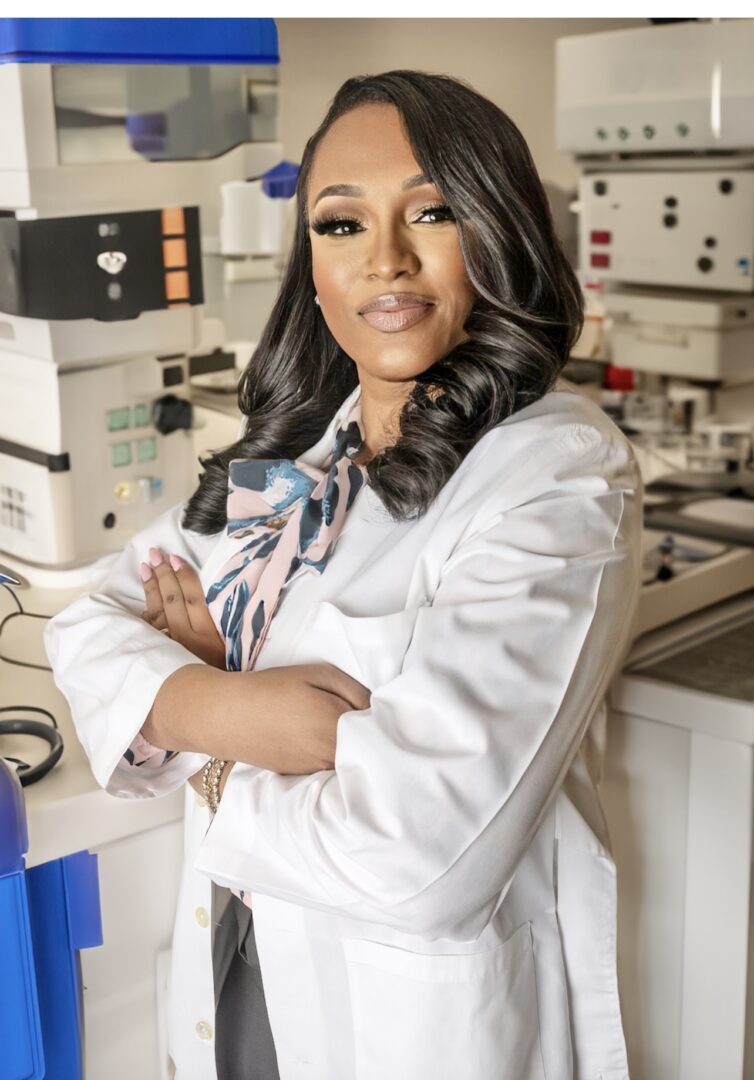We recently connected with Colletta Brabham-Orr and have shared our conversation below.
Hi Colletta, really happy you were able to join us today and we’re looking forward to sharing your story and insights with our readers. Let’s start with the heart of it all – purpose. How did you find your purpose?
I grew up hearing that cancer “ran in the family,” but I didn’t even know what ovarian cancer was until my maternal grandmother was diagnosed. It wasn’t something anyone talked about, so when she passed away, I was left with more questions than answers. That spark of confusion and grief pushed me to learn everything I could about the disease that took her, so other families wouldn’t be left in the dark.
My great-grandmother’s battle with breast cancer decades earlier hinted that there was a genetic thread, but it wasn’t until my maternal grandmother’s diagnosis and eventual death that I realized how little we knew about women’s cancers. I decided to major in biochemistry in undergrad and study tumor biology in graduate school. Every time I wrote a grant proposal or stayed late in the lab, it felt like I was chasing down the question she never got to ask: “Why wasn’t this caught sooner?”
Today, as a scientific writer at Merck, I work with researchers who are discovering new screening methods and targeted therapies. My job is to take complicated data like the latest on BRCA-related risk or improvements in early detection and turn it into clear, actionable information for patients and clinicians. Whenever I see a breakthrough in early detection or hear about a promising clinical trial, I think back to my maternal grandmother and great-grandmother. Their experiences fuel my commitment to make sure no woman has to learn about ovarian or breast cancer only when it’s already too late.
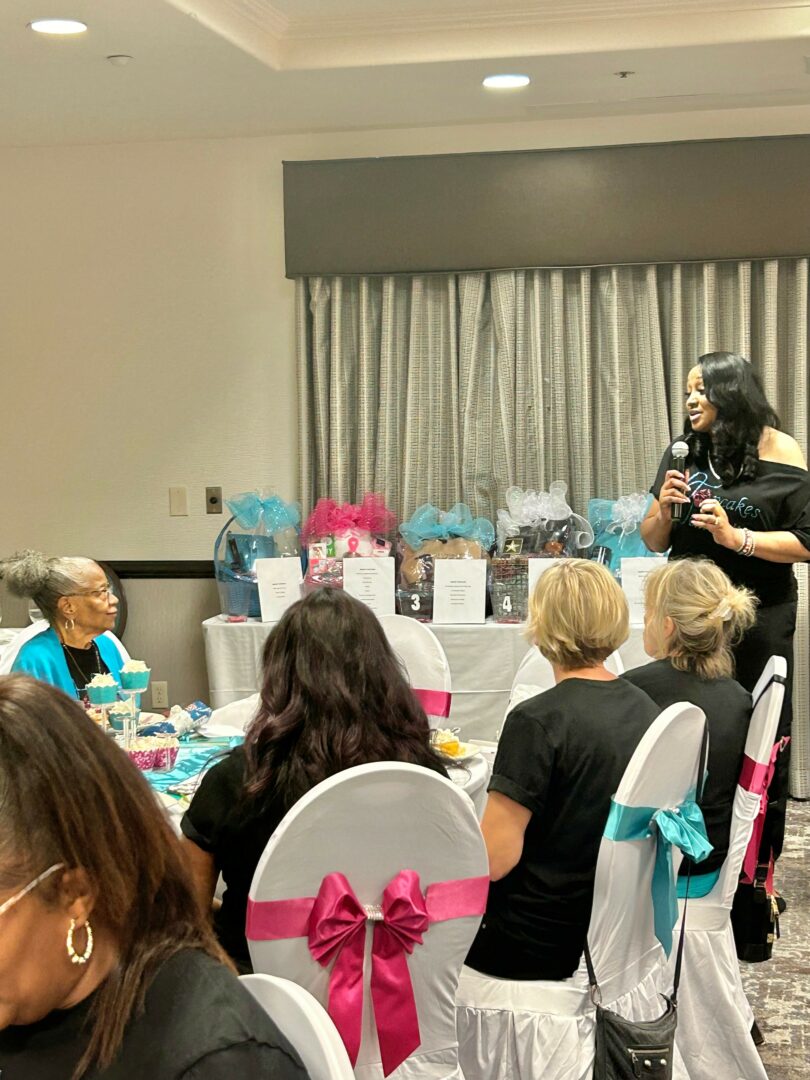
Let’s take a small detour – maybe you can share a bit about yourself before we dive back into some of the other questions we had for you?
Professionally, I am the founder of Colletta Orr & Associates, where I create and curate a suite of EmpowerHER products designed to educate and empower women around breast and ovarian cancer. At the core of our offerings is the EmpowerHER Card Deck, a bridge-size, awareness building game that introduces key facts, risk factors, and conversation starters in a fun, accessible format. We’ve already designed the full deck and matching box, and it’s currently in production with an anticipated Etsy launch under “The Pink & Teal Experience” later this summer.
Building on that momentum, we’ve also developed the EmpowerHER Partner Kit, a branded PDF toolkit featuring testimonials, program outlines, and customizable materials for organizations to host their own EmpowerHER workshops. That resource has already been shared with groups like Cedars-Sinai and Emory Healthcare, and we’re working to expand its reach into additional hospital systems and community centers. Beyond print-ready products, I’ve created a downloadable Resource Library (PDF guides on breast and ovarian cancer topics) and a 30-day cancer protection workbook that pairs with our live webinars so attendees leave with both knowledge and actionable steps.
What excites me most is seeing these pieces come together as a cohesive brand: each EmpowerHER product, whether it’s the card deck, partner kit, or digital guide works in concert to spark important conversations and prompt early detection. This summer, in addition to the Etsy debut, we’re launching a luxury pink & teal candle under our HEREDITÉ line to further support awareness efforts, with proceeds reinvested into free community workshops. We’re also finalizing details for “Pink & Teal Talks” events in the Washington, D.C. metro area, where attendees can sample the card deck, pick up partner kits, and connect directly with cancer‐prevention experts. My goal is simple: to keep innovating on the EmpowerHER brand so that every woman, no matter where she is, has access to engaging, science backed tools that could literally save her life.
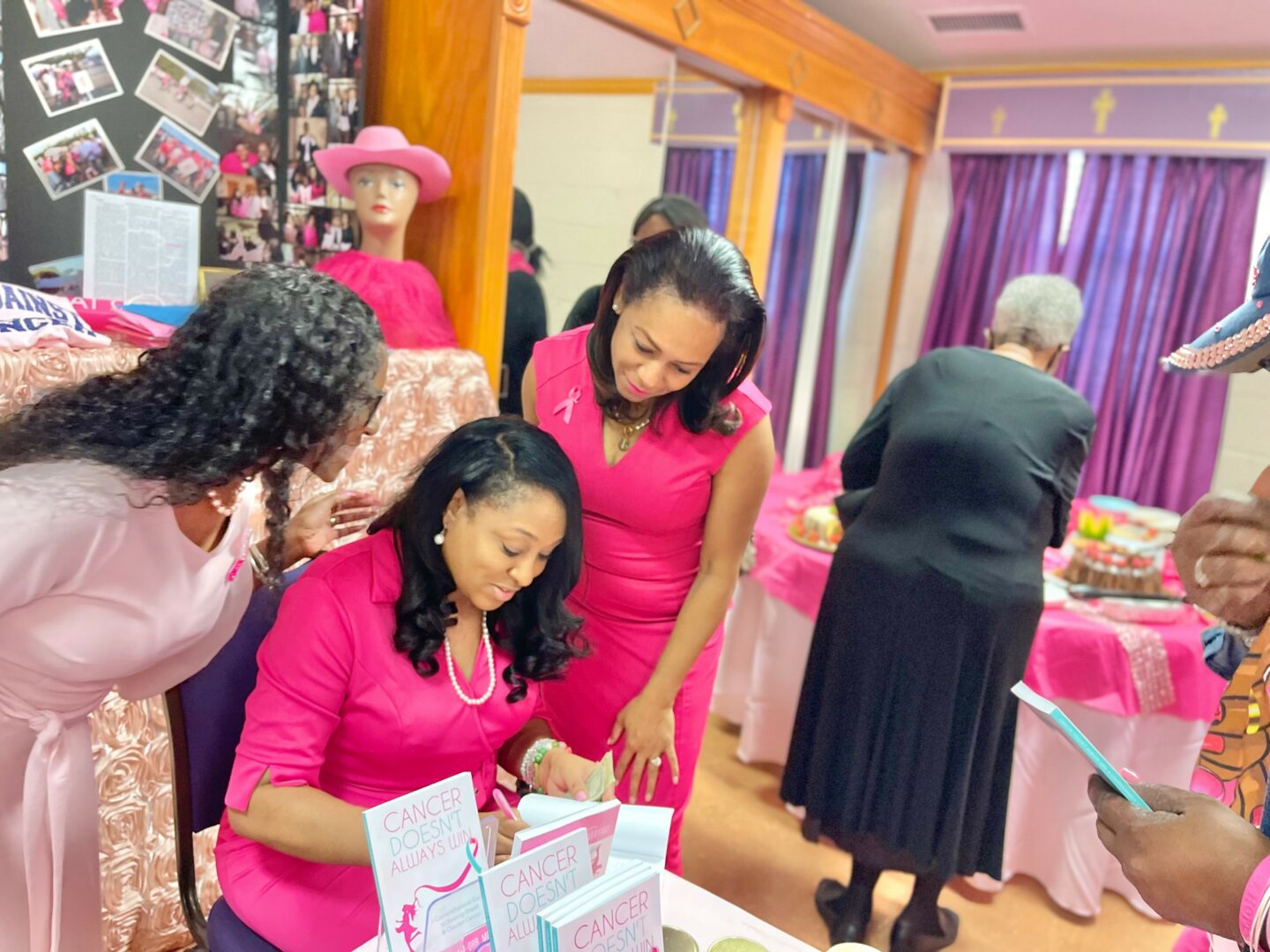
There is so much advice out there about all the different skills and qualities folks need to develop in order to succeed in today’s highly competitive environment and often it can feel overwhelming. So, if we had to break it down to just the three that matter most, which three skills or qualities would you focus on?
I’d pinpoint three key qualities and skills that shaped my path:
Curiosity and a willingness to ask questions.
Early on, I realized that the more I questioned “why” and “how,” the more doors opened. When my maternal grandmother passed from ovarian cancer, I didn’t settle for surface-level explanations—I dug into basic biology texts, asked professors about tumor markers, and volunteered in any lab that would let me shadow.
Advice: If you’re just starting out, embrace that nagging “what if?” feeling. Sign up for introductory courses in biochemistry or molecular biology (even if they feel challenging at first). Reach out to graduate students or postdocs in your department and ask to sit in on lab meetings or help with simple tasks. The goal isn’t to master everything immediately; it’s to build the habit of turning confusion into concrete research questions.
Clear communication especially the ability to translate complex science for nonexperts.
As I transitioned from bench work to scientific writing at Merck, I saw how pivotal it was to synthesize dense data (like genomic sequencing results or clinical trial endpoints) into plain language that patients, caregivers, or nonprofit leaders could actually use. That skill not only amplifies your impact, but it also forces you to internalize the material at a deeper level.
Advice: Start journaling or blogging about a research topic in your own words, no jargon allowed. Then ask a friend or family member to read it and tell you which parts still feel confusing. Volunteer to present a journal club or record a short explainer video on YouTube or social media. Every time you translate “bench-speak” into everyday language, you’re honing a skill that will make your work memorable and accessible.
Resilience and the ability to bounce back from setbacks.
Between grant rejections, experiments that failed to reproduce, or webinar signups falling short of expectations, there were countless moments when it would have been easier to walk away. What kept me going was repeatedly reminding myself of why I started, honoring my grandmother and great-grandmother and treating obstacles as data points rather than deal-breakers.
Advice: Reframe failures as feedback. If an experiment doesn’t work, sit down and list three possible reasons (protocol, reagent quality, experimental design). If a product launch or event underperforms, gather feedback immediately, survey attendees or analyze engagement metrics and adjust. Build a small support network (mentors, peers, or a professional group) who can remind you that one “no” or one negative result doesn’t define your trajectory.
By nurturing genuine curiosity, practicing clear communication, and cultivating resilience, you’ll not only deepen your scientific or entrepreneurial skills but also build the confidence to keep pushing forward just like I did when I decided to major in biochemistry and later develop EmpowerHER products.
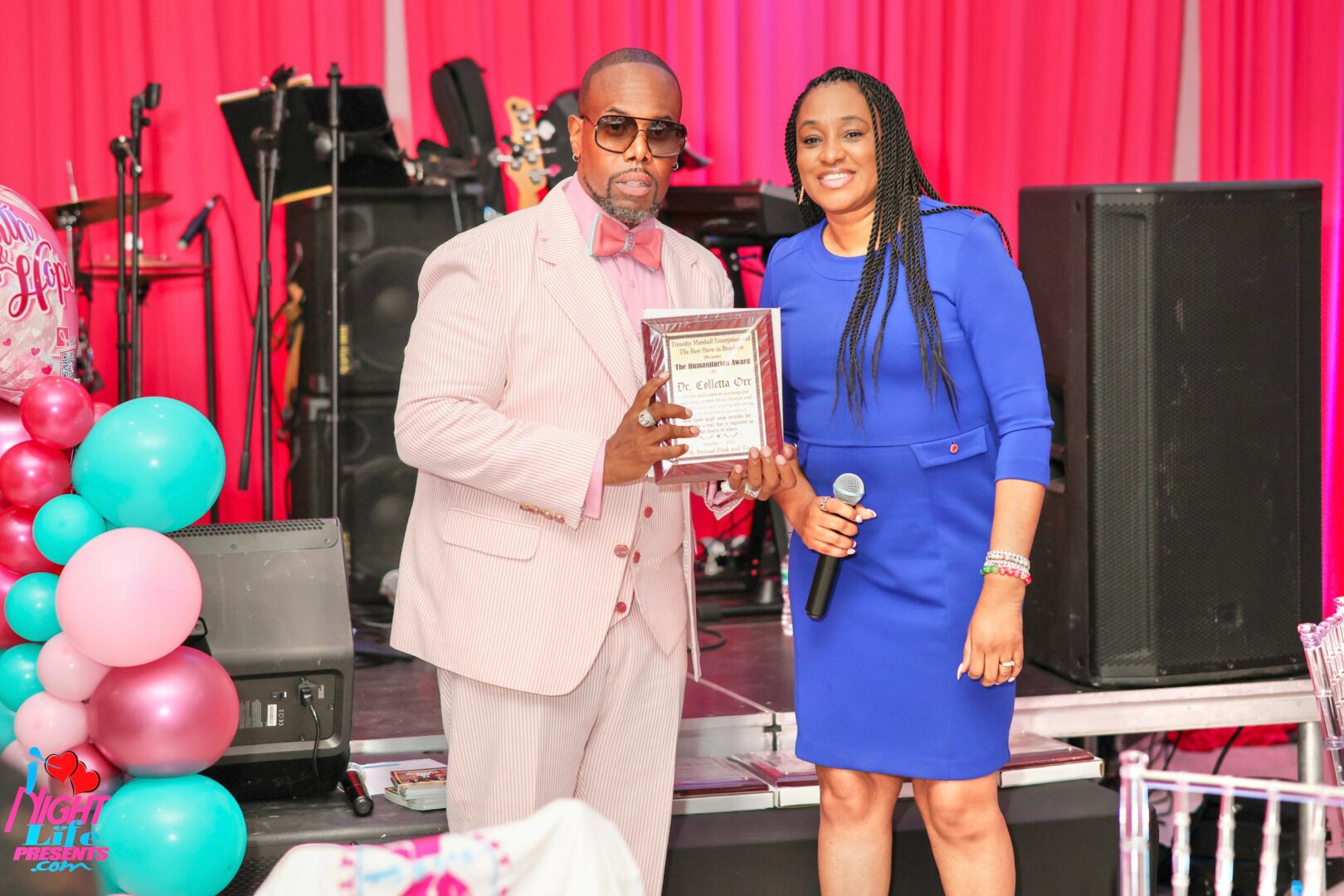
Okay, so before we go we always love to ask if you are looking for folks to partner or collaborate with?
Yes—collaboration is at the heart of everything I do, and I’m always eager to connect with partners who share our mission of raising awareness and driving early detection for breast and ovarian cancer. In particular, I’m looking to team up with:
Healthcare organizations and hospital outreach teams
Whether you’re part of a cancer center’s education department or a community health clinic, I’d love to explore how we can integrate EmpowerHER resources, like the Card Deck or Partner Kit into your patient education efforts or wellness fairs.
Nonprofits and advocacy groups focused on women’s health
If you run support networks, fundraising events, or community workshops, let’s talk about co‐hosting a “Pink & Teal Talks” event or embedding the EmpowerHER Card Deck as an interactive activity during your next awareness drive.
Corporate wellness programs and HR diversity initiatives
Companies that prioritize employee health and want to broaden their DE&I programming often look for turnkey, science-backed content. I can help customize a virtual or in‐person workshop (complete with our 30‐Day Cancer Protection Plan workbook) that resonates with women and allies across all levels.
Influencers, content creators, and media outlets
If you blog, podcast, or produce video content for women aged 25–60, especially those interested in science, health, or lifestyle topics, let’s co-create interviews, guest posts, or social media campaigns. I can provide expert commentary, personal stories, and promotional materials to help your audience take proactive steps.
Funders and grant partners
Foundations or corporate sponsors keen to underwrite community education and early detection initiatives are welcome to partner on anything from underwriting the production of additional EmpowerHER cards to sponsoring free workshops in underserved areas.
If you’re reading this and think there’s synergy, I’d love to hear from you. You can connect with me directly at info@collettaorr.com. Let’s work together so every woman, regardless of background, has access to the tools, knowledge, and community support she needs to stay informed and healthy.
Contact Info:
- Website: https://www.CollettaOrr.com
- Instagram: @collettaorr
- Facebook: When Breast Cancer Meets Ovarian Cancer
- Twitter: @collettaorr
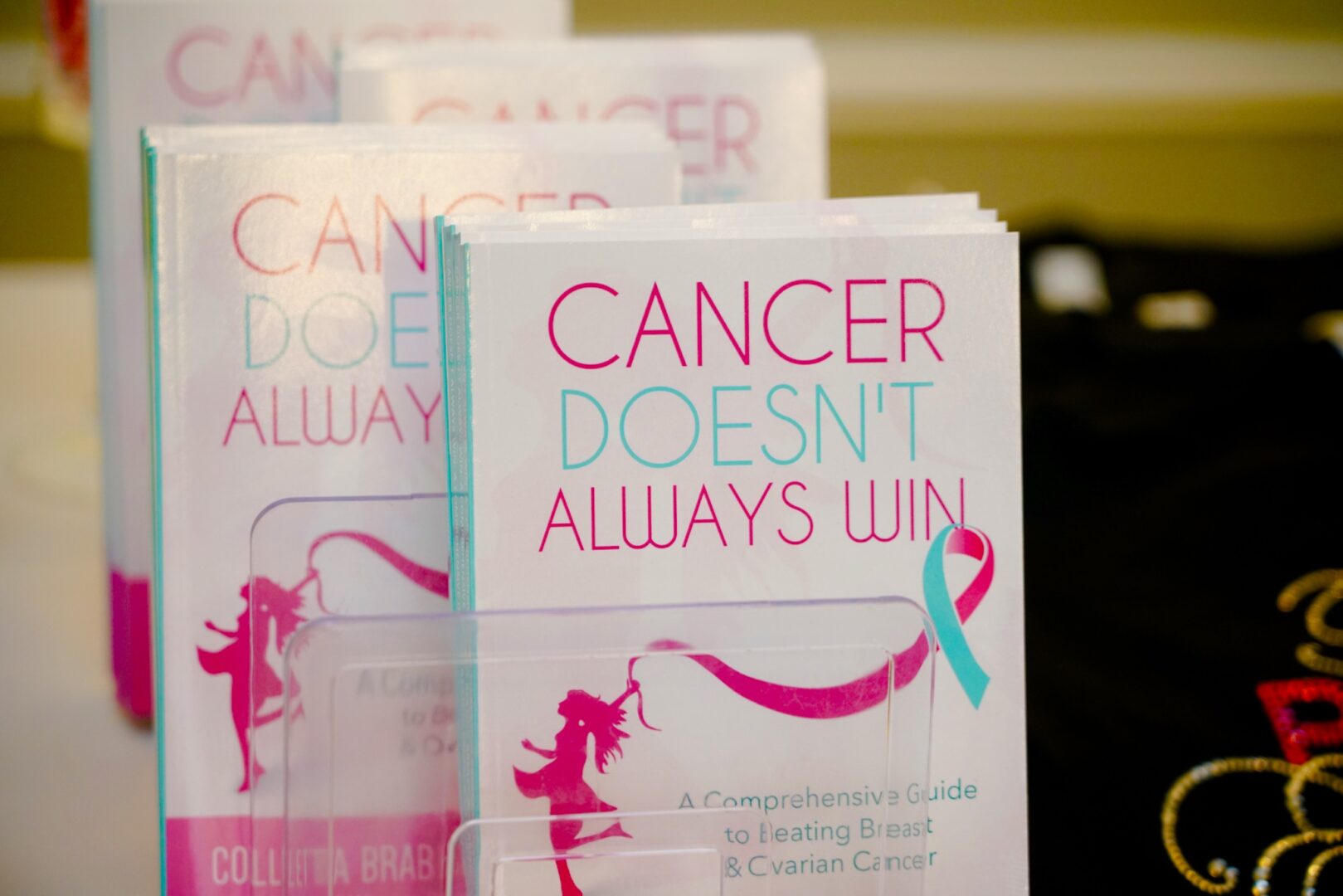
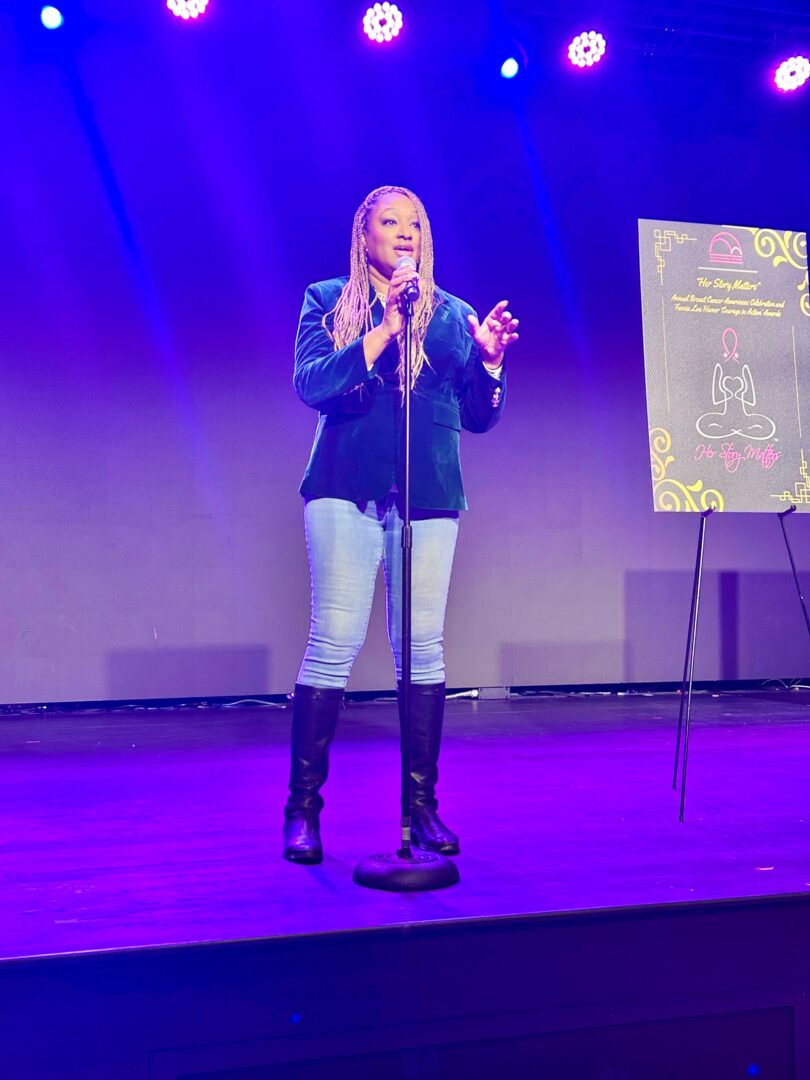
so if you or someone you know deserves recognition please let us know here.

